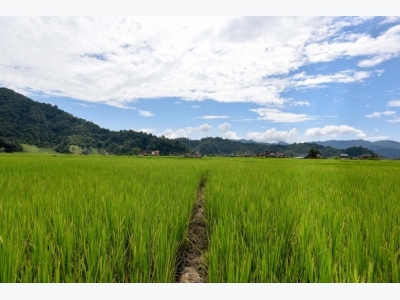Developing climate-smart agriculture

How should India and other countries adapt their agricultural practices to a changing climate? Researchers explain how they go about when developing new rice growing technologies.
Countries in the tropics and sub-tropics are particularly vulnerable as extreme weather conditions pose a serious threat to their food security.
For India, the rapidly growing economy, climate change and variability may have a negative impact on the well-being of a steadily increasing population, of which the vast majority reside in rural areas and are highly dependent on natural resources for their food, shelter and income.
To address these issues, and find solutions to the climate-related challenges that lie ahead, the ClimaAdapt project was initiated in Andhra Pradesh, Telangana and Tamil Nadu states in 2012.
Capacity of farmers
The project, which is a collaborative effort between Bioforsk and several Indian research institutes, aims to develop climate-smart agriculture technologies in India, thereby improving the adaptive capacity of farmers.
In this film, you will see how researchers work together with stakeholders and policy makers to develop methodologies for upscaling selected adaption measures in the three provinces. You will see how the project partners go about in regard to stakeholder involvement and capacity building of farmers, women included. The film also shows why it is necessary to maintain an interdisciplinary and integrated approach to reach the desired impacts of a project such as ClimaAdapt, which among other things entail stronger science-stakeholder-policy linkages and science based innovative adaptation measures.
Related news
 The difficulties in reaching Vietnam’s agricultural export target
The difficulties in reaching Vietnam’s agricultural export target Last year, Vietnam's agricultural, forestry, and fisheries (AFF) exports posted spectacular performance with $36 billion of export turnover
 Quang Tri lures 160 billion VND in hi-tech agriculture
Quang Tri lures 160 billion VND in hi-tech agriculture The central province of Quang Tri has attracted eight projects in high technology and green agriculture worth over 160 billion VND (7.02 million USD)
 Indonesia craves Vietnamese coffee
Indonesia craves Vietnamese coffee The Indonesian firms also came to the central highlands region, which produces 90 per cent of Vietnam’s coffee output, to meet with farmers and enterprises